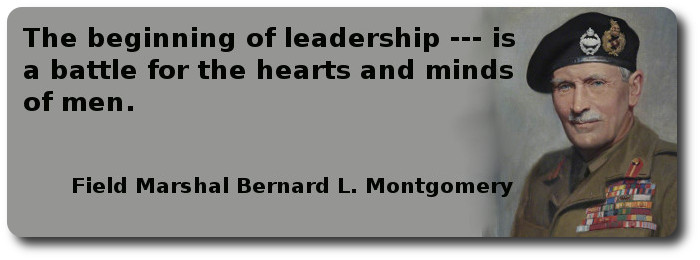
Quotes - Soldiers (page 6)
One of the soldier's prerogatives is to laugh; and he laughed without ceasing throughout the [First World] war. There is tragedy and suffering behind much of his mirth; but the measure of his humour is a sure indication that all is well with the race. War seemingly brings out the aptitude for laughter which lies dormant in peace. - Colonel W.N. Nicholson, C.M.G., D.S.O., Behind the Lines, 1939
The troops who fight the best do so, not because of their nationality, but because at that specific time they are the best trained, the best disciplined and the best led on the field. - Strome Galloway, The General Who Never Was, 1981
That the British soldier was a hero was no reason for denying him the privilege of being lashed to the triangle and being tortured, or for trusting him in a responsible ex-service job, and very little for improving the inhuman condition of his daily life. The employer, the inn-keeper, the mother of any good-looking wench, might have been more inclined to echo Wellington's 'scum of the earth' as a description of those heroes with whom they might be brought into personal contact. But not one of them would have seen anything incongruous in going wild with Tennysonian enthusiasm over the spectacle of a cavalry Brigade gratuitously offering itself as a target for artillery, though it would have required extraordinary strength of character and skill in horsemanship for any individual soldier to have shirked his part in that act of criminal bravery. - Esme Wingfield-Stratford, D.SC., MA, THOSE EARNEST VICTORIANS, 1930
The first duty of any soldier is to master combat skills. More important, the soldier must be exposed to the atmosphere of the combat unit, not only to build and awareness of its social context, but to inculcate the ethos of the legion. - Richard A. Gabriel and Paul L. Savage, Crisis in Command: Mismanagement in the Army; 1978
... some men can be nothing but soldiers. The feminine parallel is with the stage: some women are fulfilled only theatrically - as prima donna, diva, icon of the photographer or couturier - yet, through that fulfilment, embody a universal ideal of femininity that earns the adulation of women and men alike. Such adulation is not enjoyed by male actors, however much admired; a stage hero merely simulates the running of risks. The warrior hero is admired by both sexes for running real risks; but the man of soldierly temperament - how blinkered social scientists are to the importance of temperament - will run risks whether admired by the outside world or not. It is the admiration of other soldiers that satisfies him - if he can win it; most soldiers are satisfied merely by the company of others, by a shared contempt for a softer world, by the liberation from narrow materiality brought by the camp and the line of march, by the rough comforts of the bivouac, by competition in endurance, by the prospect of le répos du guerrier among their waiting womenfolk. - John Keegan, A History of Warfare, 1994
Though I shall maintain that good soldiers are not bred from bad stock, I do not doubt that many unpromising specimens were transformed by training; in particular by that part of training which consists in inculcating esprit de corps. I remember men recruited at the street corner by starvation who came to act on the principle that if the Regiment lived it did not matter if they died, though they did not put it that way. This was their source of strength, their abiding faith, it was the last of all the creeds that in historical times have steeled men against death. - Lord Moran, The Anatomy of Courage, 2nd edition, 1966
I hold it to be one of the simplest truths of war that the thing which enables an infantry soldier to keep going with his weapons is the near presence or the presumed presence of a comrade. - S.L.A. Marshall, Colonel, AUS, Men against Fire; the Problem of Battle Command in Future War, 1947
A large man can better sustain the weight of his weapons, his knapsack, his bread rations and the rest of his equipment. He is better at loading and aiming his musket, and thrusting with the bayonet. He finds it easier to jump a ditch, climb a breastwork and engage in other exertions. (Warnery, C.E., Des Herrn Generalmajor von Warnery samtliche Schriften, 9 vols., Hanover, 1785-91, Il, 35-6) - Christopher Duffy, The Military Experience in the Age of Reason, 1987
The sailor and soldier are unique in one respect, in that they are brought up on theory, and, only perhaps once in twenty years, get the opportunity to put these theories into practice. When this does happen, they usually find that the maxims and precepts they have so carefully committed to memory do not meet the case. - John Aye, Humour in the Army, 1932
- The O'Leary Collection; Medals of The Royal Canadian Regiment.
- Researching Canadian Soldiers of the First World War
- Researching The Royal Canadian Regiment
- The RCR in the First World War
- Badges of The RCR
- The Senior Subaltern
- The Minute Book (blog)
- Rogue Papers
- Tactical Primers
- The Regimental Library
- Battle Honours
- Perpetuation of the CEF
- A Miscellany
- Quotes
- The Frontenac Times
- Site Map